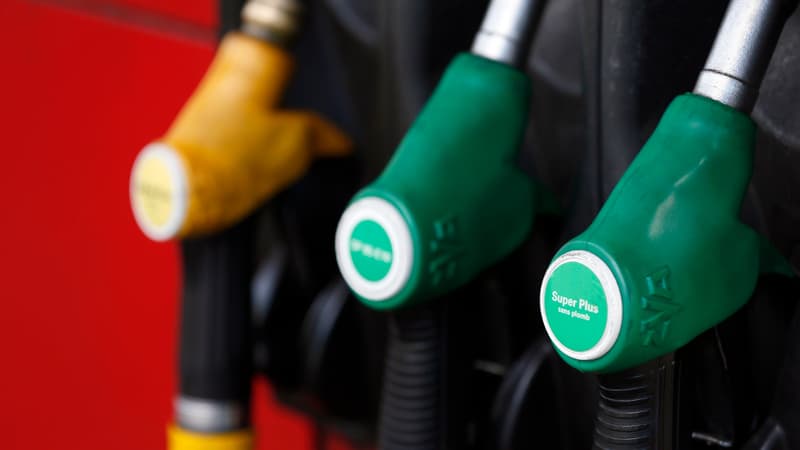“Go fill up because there won’t be many left anytime soon.” The secretary of the Bouches-du-Rhône CGT Departmental Union, Olivier Mateu, set fire to gunpowder last week by repeatedly calling on motorists to go to service stations to refuel. According to the union representative, the ruptures could multiply in the coming days due to the social movement against the pension reform that affects all the activities of the refineries.
A weekend effect
On Saturday, the site dedicated to the government mentioned situations of shortages of at least fuel in 4% of the approximately 11,000 service stations in the territory. By 10:30 a.m. Monday, that percentage had doubled to 8%.
However, the president of the Mobilians professional union – which represents half of the French gas stations – insists on the existence of departmental disparities.
In fact, it is now 50% of the service stations in Bouches-du-Rhône, almost 41% of those in Gard and a third of those in Vaucluses that are affected by breakages.
In the Var and Alpes-de-Haute-Provence, these breaks affect between a quarter and a fifth of the sites. The Pays de la Loire is also a region particularly exposed to the risk of shortages, with shortage rates already above 10%.
Are the Lavéra and Port-Jérôme-Gravenchon refineries closed today?
Upstream of the service stations, the situation could become tense in the refineries. Of the six conventional refineries in France, the TotalEnergies refinery in Donges (Loire-Atlantique) is already closed due to a technical problem unrelated to the social movement while two others have a reduced flow, namely the TotalEnergies refinery in Feyzin (Rhône) near of Lyon and that of Esso-ExxonMobil in Fos-sur-Mer (Bouches du Rhône).
“The fuel shipments from the Fos refinery continue to be impacted and production is also adjusted,” the oil group said on Monday morning. On Friday night, France’s largest refinery, TotalEnergies’ Gonfreville-L’Orcher site in Normandy, also saw its production units phased out.
The union coordinator of the CGT in TotalEnergies, Eric Sellini, specifies that the last two conventional refineries should follow the movement at the beginning of the week. The CGT planned to close the PétroIneos refinery at Lavéra in Bouches-du-Rhône for this Monday afternoon “at the latest”. The closure of the Esso-ExxonMobil refinery in Port-Jérôme-Gravenchon (Seine-Maritime) could also occur before tomorrow Tuesday due to a strike at the Le Havre oil depot that limits the arrival of crude oil to be refined.
“On Saturday, March 18 at 2:00 p.m., while the refinery normally dispatched products, a small group (between 6 and 15 depending on the shifts this weekend and this morning), supervised by the CGT, decided to relaunch a movement of strike in the framework of national protests. actions against the pension reform with the impact of the interruption of fuel shipments, specifies the direction of Esso-ExxonMobil. Refinery output is reduced and adjusted according to crude arrivals from the Le Havre terminal.
At least four months of inventory
In reality, these difficulties that are accumulating at various refining sites will not drastically change the situation in the short and medium term, according to Francis Pousse. “For about ten days, we no longer benefited from the fuel shipping part in the refineries, so even if the production part is no longer working, not much changes in the immediate future.
The president of the Mobilians professional union also recalls that the different fuel reserves were filled in anticipation of this social movement against the pension reform that was anticipated, unlike the one related to wages last fall.
The union representative also adds that France only refines 50% of the fuel it consumes, the other half being imported. Therefore, these imports constitute a long-term substitute for domestic difficulties.
However, the executive reaffirmed its determination to intervene in the event of too significant a deterioration. Industry Minister Roland Lescure had already declared on Saturday that the government would assume its “responsibilities” such as “in the fall” when it made requisitions to unblock oil sites during wage strikes.
This morning, Clément Beaune added in this regard, specifying that “at the time we speak, we are not in the requisitions.” “It is a decision of last resort, but as we have done before, as we did in October, if necessary, we would not hesitate to do so to avoid an economic and traffic blockade in our country,” warned the Minister of Transport in Franceinfo, referring to “specific measures, refinery by refinery”.
Source: BFM TV


